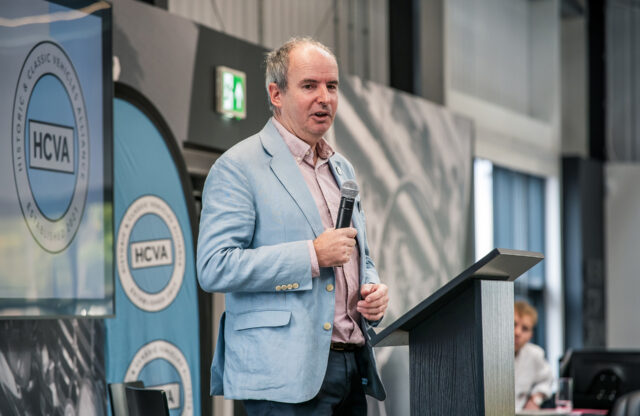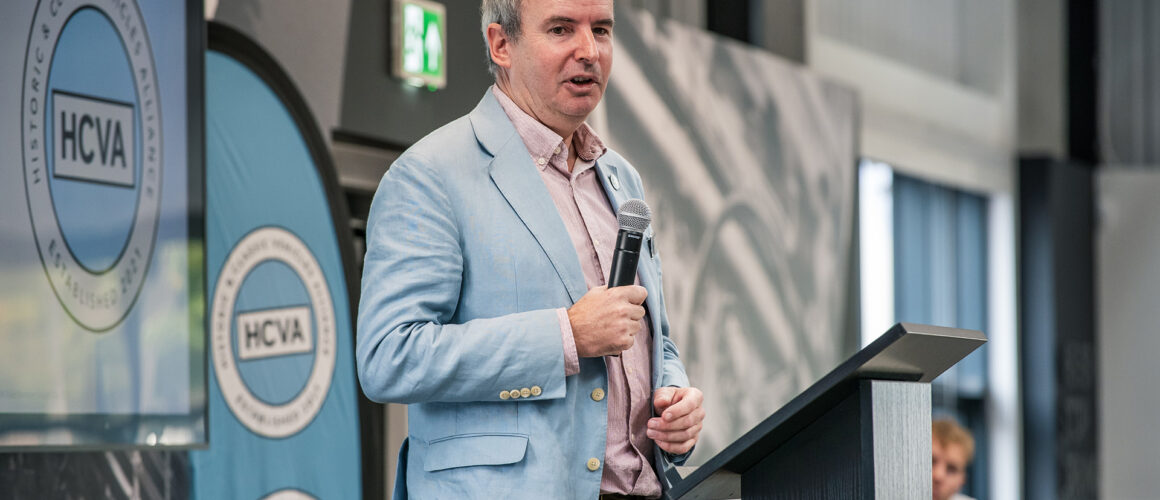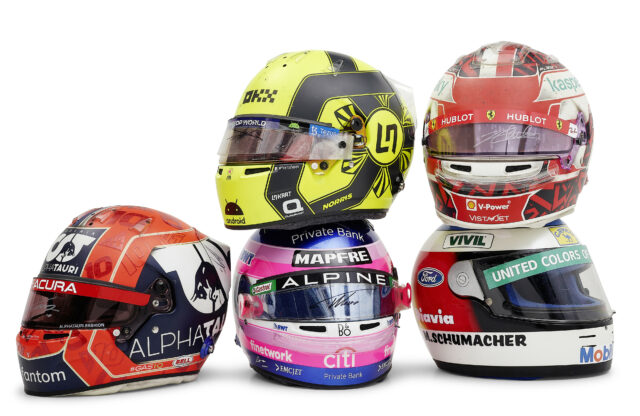WORDS: WAYNE BATTY | PHOTOS: GUN HILL STUDIOS
You don’t need to be of any particular political or social bent to know that heritage matters; you just need to be human. We make more informed decisions to the benefit of our future when we know, respect and preserve our past. The Historic and Classic Vehicles Alliance (HCVA) – a UK focused automotive trade body advocating the preservation, promotion and enjoyment of classic cars – was formed a little over two years ago to do exactly that. Striving to be one unbiased voice for this highly significant, profoundly important sector and its many talented individuals, the Alliance, in tune with other like-minded organisations, is working to turn the tide for a sector under both legislative and ideological attack.
The HCVA’s first Heritage Matters Day, held recently at Hagerty’s UK Clubhouse at Bicester Heritage, afforded around 100 trade members and guests relevant insight into what is happening behind the scenes at a ministerial, governmental department (read DVLA) and industry level.
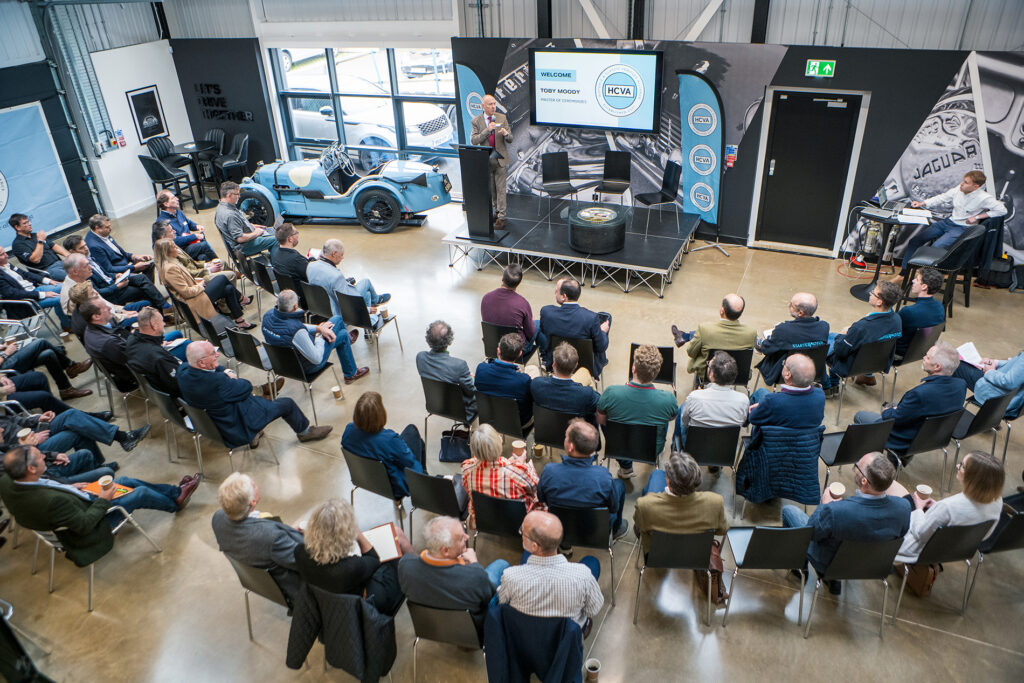
Hosted by motor sports broadcaster Toby Moody, the day started with HCVA chair David Meek presenting the organisation’s vision and future strategy. He began by highlighting the importance of being a collective voice for the great number of SMMEs that together contribute a surprising £18 billion to the economy, generating £4.5 billion for HMRC. David spoke of the need to build credibility and trust all round, to facilitate access to education and work experience, and to change the industry’s mostly inaccurate ‘oily rags’ career prospects perception. For those sworn petrol-heads who so easily dismiss electric propulsion, he reiterated the HCVA’s no-bias stance against any new technology or solution, reminding guests that, “25 years ago, the future was diesel”. Indeed.
Also high on the priority list is the need to protect innovation, drive investment and promote sustainability, the majority of which is determined by government regulation and policy. Right on cue, David handed the stage to Greg Smith, MP for Buckinghamshire and member of the Transport Select Committee to deliver the keynote speech. Some politicians seem hell bent on waging war on motorists, but Greg is clearly a car enthusiast; a standout quote being: “Every car restored exemplifies sustainability over throw-away consumerism.”
And while the wheels of Westminster move glacially, he was quietly confident that government regulation will support the scaling up of so-called e-fuels – every faithfully restored, preserved or just maintained classic requires liquid fuel. As he pointed out, the result of a ‘carbon in equals carbon out’ equation is, quite literally, net zero. For internal-combustion devotees, that’s akin to: have cake, may eat.
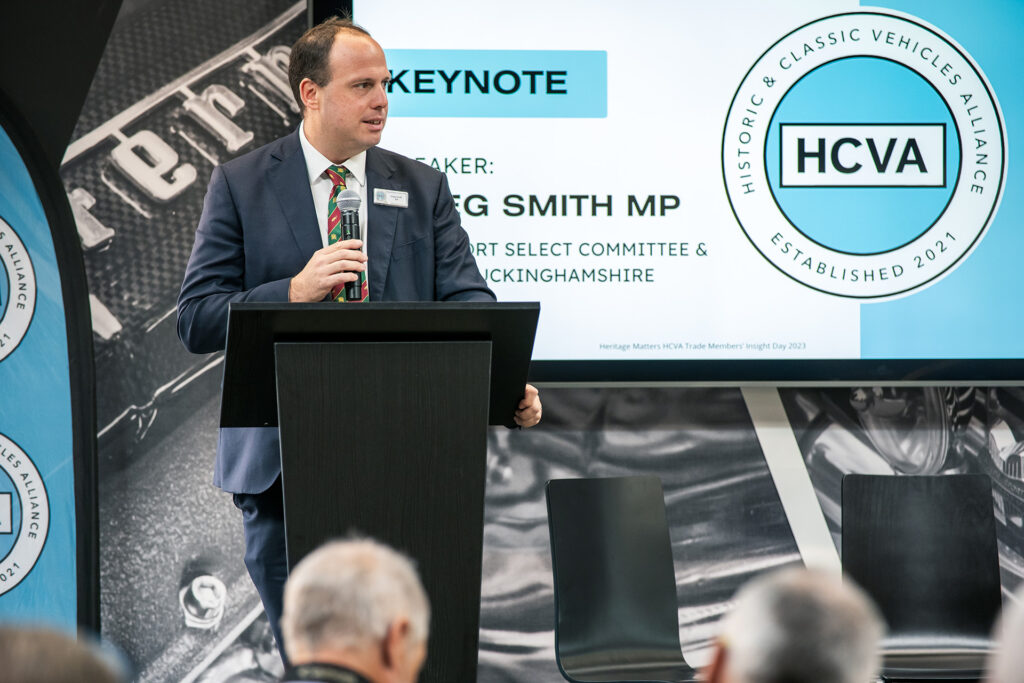
Later, we heard from David Withers, CEO of StarterMotor, Ross Hedigan from StarterMotor Business Development; John Pitchforth, founder of the Heritage Skills Academy and Dan Geoghegan, CEO of Bicester Motion. Throughout the session many thought-provoking stats emerged: there are 1.54 million classic and historic vehicles in the UK; the average age of a historic car driver is 62; the average age of mechanic in the industry is 57; the sector supports 113,000 jobs. Putting two of those together, Geoghegan pointed out that more than a million historic cars would be changing hands within 25 years – a galvanising thought for many, no doubt.
All spoke passionately about the importance of education in securing the industry’s future, but marketing the sector as an attractive proposition to youngsters is the key. “Have more fun, then people will want to be involved,” said Dan. Interestingly, StarterMotor, the charity that aims to spark a passion for historic motoring in the next generation, promotes nine career opportunities, namely Restoration, Engineering, Manufacturing, Media, Events, Sales, Finance, Insurance and Destinations; very few of which necessitate the bulk purchase of industrial hand cleaner.
After a break, David Meek hosted a discussion around regulation and policy with Dudley Ashford and Gareth Jones, both from DVLA Corporate Services. While the specific DVLA-related challenges faced by the classic car industry were not discussed in any detail at all, and no policy clarification was forthcoming, the mere presence of official representation was a major shift from what has gone before. There is an acknowledgement that the concerns are real, and a seeming willingness to address them, at the very least by continuing to engage with the sector in general and with the HCVA in particular. Promisingly, “the traction is there”, said Ashford.
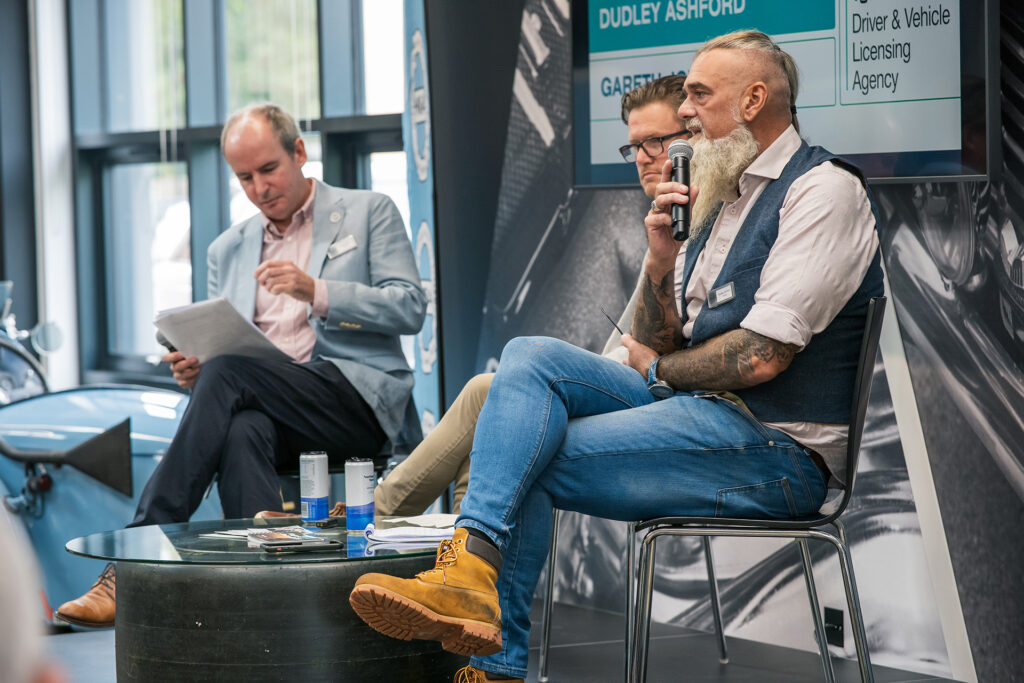
The great hopes for our Otto-cycle motors are without question non-fossil-derived carbon-based biofuel and e-fuel products, made from plant waste or carbon captured from the air. The HCVA is solidly behind their development. However, realising the potential for a lack of public awareness, the overly optimistic sustainability claims of some, and the subsequent risk of demonisation, the HCVA is instituting a sustainability rating for every applicable current and future liquid-fuel product. We can expect full announcements along with a rollout in the remaining months of 2023.
The inaugural HCVA insights day was, for Magneto at least, exactly that, insightful. Happily, Heritage Matters Day looks set to become a regular event, although we’re sure the classic car sector and the industries it incorporates hope the discussion develops into something more concrete. After all, stability is the bedrock of prosperous progress.
